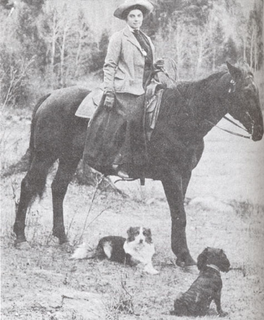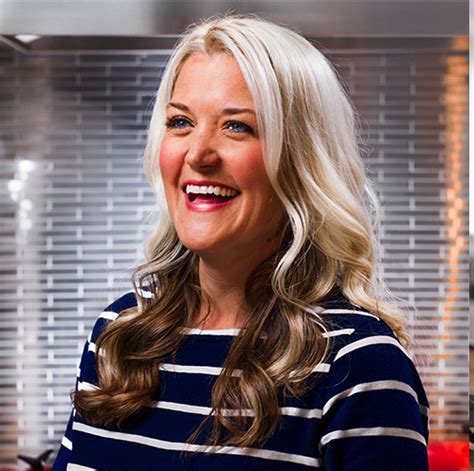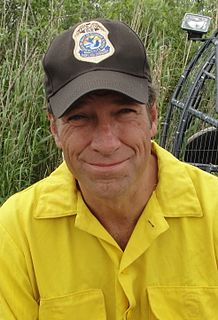Top 97 Pottery Quotes & Sayings - Page 2
Explore popular Pottery quotes.
Last updated on December 18, 2024.
There is on the earth no institution which Friendship has established; it is not taught by any religion; no scripture contains itsmaxims. It has no temple, nor even a solitary column. There goes a rumor that the earth is inhabited, but the shipwrecked mariner has not seen a footprint on the shore. The hunter has found only fragments of pottery and the monuments of inhabitants.
You never hear Jesus say in Pilate's judgement hall one word that would let you imagine that He was sorry that He had undertaken so costly a sacrifice for us. When His hands are pierced, when He is parched with fever, His tongue dried up like a shard of pottery, when His whole body is dissolved into the dust of death, you never hear a groan or a shriek that looks like Jesus is going back on His commitment.
When we worked at the pottery, we did learn to make pots, that is, the physical act of making the pot. We learned to control clay, to put it where you want it and not just wherever it wanted to go, and that was valuable. At the end of about six months, though, I think if that was all we had, we may have been inclined to leave because the workshop did not challenge us so much as living with [Bernard] Leach did.
We did respect [Bernard Leach], although we also were willing to challenge ideas and at least put forth our feelings about the way the pottery was run, about things that were done, about the pots we were making, etc. And we would get into sometimes some very fierce arguments. We'd be shouting at one another because of disagreements.
[In the Field Museum of Natural History] we could see very simple, primitive, hand-built pottery from Babylonia and ancient Egypt and so forth, Greece. We could see the most sophisticated things that came out of the Orient - Japan, Korea, and China - some few pieces of European porcelain, majolica [tin glazed earthenware], and that sort of thing. But they had a marvelous collection.
I think back to some of the pots we made when we first started our pottery, and they were pretty awful pots. We thought at the time they were good; they were the best we could make, but our thinking was so elemental that the pots had that quality also, and so they don't have a richness about them which I look for in my work today. Whether I achieve it all the time, that's another question, because I don't think a person can produce at top level 100 percent of the time.
We asked a lot of questions and we watched everyone who was working in the studio. And we had an opportunity to sit in on discussions, aesthetic discussions at the pottery, which took place generally over tea breaks in the morning and afternoon. So we learned a lot just from being around there [with Bernard Leach ].
Rentals sank, living rose. I could not afford help. I must be owner, agent, landlady and janitor. I loathed landladying... I tried in every way to augment my income. Small fruit, hens, rabbits, dogs - pottery... I never painted now - had neither time nor wanting. For about fifteen years I did not paint.
As we cleared the passage we found mixed with the rubble broken potsherds, jar seals, and numerous fragments of small objects; water skins lying on the floor together with alabaster jars, whole and broken, and coloured pottery vases; all pertaining to some disturbed burial, but telling us nothing to whom they belonged further than by their type which was of the late XVIIIth Dyn. These were disturbing elements as they pointed towards plundering.
We were working from very exact models and dimensions and weights of clay to make these pots which had been designed some 10 or 12 years previous to our arriving [at Bernard's Leach studio]. And we, being, I guess you would say young, arrogant Americans, thought that we ought to be able to somehow express ourselves a little bit more in the daily work of the pottery.
The great cry that rises from our manufacturing cities, louder than their furnace blast, is all in very deed for this, that we manufacture everything there except men; we blanch cotton, and strengthen steel, and refine sugar, and shape pottery; but to brighten, to strengthen, to refine, or to form a single living spirit, never enters into our estimate of advantages.
Friends of Bernard's [Leach] came to visit, and when we went to London, we were given introductions to people like Lucie Rie, Hans Coper, Richard Batram. All these people were, let's say, made available to us by a friendship with Leach. In addition there was a potter's group - what was it called? I think it was called the Cornish Potters Society, but I'm not sure of that. Anyway, they had meetings and we would go with Leach to these meetings and meet other potters, and they would have programs where they would discuss pottery and people would interchange ideas.
We had our own civilization in Africa before we were captured and carried off to this land. We smelted iron, danced, made music and folk poems; we sculpted, worked in glass, spun cotton and wool, wove baskets and cloth. We invented a medium of exchange, mined silver and gold, made pottery and cutlery, we fashioned tools and utensils of brass, bronze, ivory, quartz, and granite. We had our own literature, our own systems of law, religion, medicine, science, and education.
His whole being radiates a pure, wild sweetness, flitting through night woods with little melodious cries, on some cryptic errand. There is also an aura of doom and sadness about this trusting little creature. He has been abandoned many times over the centuries, left to die in cold city alleys, in hot noon vacant lots, pottery shards, nettles, crumbled mud walls. Many times he has cried for help in vain.
If [Bernard Leach] didn't like the drawing, he'd X it out and do another one and change the form a little bit. And when he was all done, he would stuff these pieces of paper in his pocket and go off to the pottery, and when he wanted to make pots, he would then take these out and he'd begin to produce the pot that he had designed on paper in front of us.
In searching for further training we turned to England and Bernard Leach. We thought since we had responded to his book so strongly that this would be the sort of training that we would like to have. We saved money, during the summer went to Europe, and the first stop was to go to England, visit the Leach Pottery and ask Leach if he would take us on as apprentices.
I'm trolling through the recesses of my mind for the things I did with my kids when they used to like to do things with me. They don't want to be around me now. I look back on these times - all those little funny pottery dishes that you'd pay for, and they'd paint, and they were ugly, and you glazed them, and you'd go back, pick them up, and it's like, "Oh, now I've got to put this on my desk." There's all that kind of stuff.
If you want a television, you go out and work for it and you buy it. If you want to learn about Aztec pottery, you take a course. But the relationship with God requires the active and passionate participation of you, yourself. You have to risk it. You have to abandon yourself to it. You have to leap into the fire. Nobody will do it for you; nobody can do it for you.
In the Leach Pottery we did most of our work on the wheel. [Bernard] Leach did a little work in the studio, which was press-molded forms, plastic clay pressed into plaster forms to make small rectangular boxes and some vase forms, which he liked to make. These were molds which had been made to an original that he had modeled in solid clay, and during our work there, sometimes I would be pressing these forms as a means of production.
To all the secret writers, late-night painters, would-be singers, lapsed and scared artists of every stripe, dig out your paintbrush, or your flute, or your dancing shoes. Pull out your camera or your computer or your pottery wheel. Today, tonight, after the kids are in bed or when your homework is done, or instead of one more video game or magazine, create something, anything.
Pick up a needle and thread, and stitch together something particular and honest and beautiful, because we need it. I need it.
Thank you, and keep going.
Israel is the very embodiment of Jewish continuity: It is the only nation on earth that inhabits the same land, bears the same name, speaks the same language, and worships the same God that it did 3,000 years ago. You dig the soil and you find pottery from Davidic times, coins from Bar Kokhba, and 2,000-year-old scrolls written in a script remarkably like the one that today advertises ice cream at the corner candy store.
We thought [with Alix MacKenzie], if those are the kinds of pots from every culture that interest us, why would we think that it should be any different in mid-North America 20th century? And we decided then that our work would center around that sort of utilitarian pottery, and that's what I've done ever since.
That a thing made by hand, the work and thought of a single craftsman, can endure much longer than its maker, through centuries in fact, can survive natural catastrophe, neglect, and even mistreatment, has always filled me with wonder. Sometimes in museums, looking at a humble piece of pottery from ancient Persia or Pompeii, or a finely wrought page from a medieval illuminated manuscript toiled over by a nameless monk, or a primitive tool with a carved handle, I am moved to tears. The unknown life of the maker is evanescent in its brevity, but the work of his or her hands and heart remains.
In Libya, I did well at school because I was clever. In Egyptian public school, I got the highest marks for the basest of reasons. And in the American school, I struggled. Everything - mathematics, the sciences, pottery, swimming - had to be conducted in a language I hardly knew and that was neither spoken in the streets nor at home.
I have no policy for my collection. For example, there's a bunch of meteorite [on the windowsill in my studio]. I touch it and I feel the energy from the universe. I have a 1/1,000th of a fragment of stone-age tools and pottery and debris. I can learn many things from my collection. Actually, the 1,000 Buddha, I wanted to buy it, but it's a National Treasure, so I couldn't. If you cannot buy it, just photograph it!
I do remember that when we left [Bernard Leach] after two and a half years, we went home on a boat again - this was before air travel became really easy - and Alix [MacKenzie] turned to me and she said, "You know, that was a great two years of training, but that's not the way we're going to run our pottery."
Looking back on it now, I understand why that was not possible [to express ourselves], because the pottery employed a dozen people, not all of whom are making pots. And these people had families, children, and they had to have a wage that would allow them to raise their family and they had to get a paycheck every Friday afternoon. So if we had not made pots that would sell it, would not have been possible for these people to be employed.
Then they have the audacity to go shopping and pick out their own gifts. I want to know who the first person was who said this was okay. After spending all that money on a bachelorette weekend, a shower, and often a flight across the country, they expect you to go to Williams Sonoma or Pottery Barn and do research? Then they send you a thank-you note applauding you for such a thoughtful gift. They're the one who picked it out!
The more I have learned about wine ... the more I have realized that it weaves in with human history from its very beginning as few, if any, other products do. Textiles, pottery, bread ... there are other objects of daily use that we can also trace back to the Stone Age. Yet wine alone is charged with sacramental meaning, with healing powers; indeed with a life of its own.
Zen brings creativity. And remember, if you want to be one with the creator, you will have to learn some ways of creativity. The only way to be one with the creator is to be in some moment of creativity, when you are lost. The potter is lost in making his pottery; the potter is lost while working on the wheel. The painter is lost while painting. The dancer is lost; there is no dancer, only the dance remains. Those are the peak moments, where you touch God, where God touches you.
I've got one of those over-stuffed leather chairs from the Pottery Barn. It faces north. I live in San Francisco, so there's the Golden Gate Bridge off to the left, and there's Alcatraz off to the right, and I've got a pile of pulp fiction next to me, and there's usually a decent bottle of red wine next to the fireplace.





















